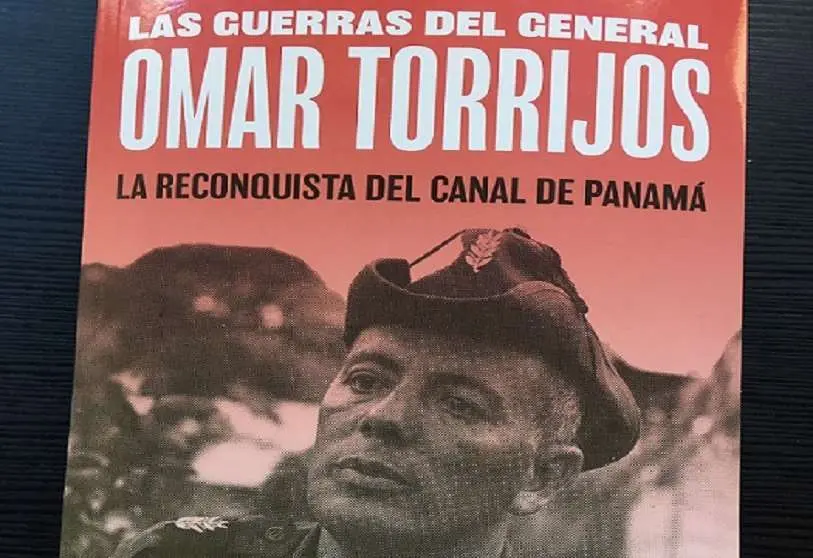General Omar Torrijos’ wars

It is about to be 40 years since the accident that took General Omar Torrijos’ life, President of Panama, a self-described "convicted, self-confessed and converted dictator". Few, if any, Latin American personalities have emerged since then on the continent to match even the projection and transcendence of his barely ten years in which he ruled the destiny of the small Central American isthmus country. Such is my own conclusion after reading the book that Zoilo G. Martínez de Vega has just published: 'Las guerras del general Omar Torrijos. La reconquista del Canal de Panamá' (Editorial Planeta Mexicana, S.A.).
As the author himself, a correspondent for 40 years for Agencia Efe on the Latin American continent, points out, his work is not that of a novelist who is allowed to embed fictional situations or characters in his narrative, but the research work of a direct witness, confidant of the protagonist himself and of the many friends, adversaries and even more or less bitter enemies who enjoyed or suffered him. All of this, in 600 pages that make up more than a biography, the highly documented account of how Torrijos led the fight against the American fruit multinationals in the ignominious Banana War, and his great historical achievement: the recovery of the Panama Canal, the largest artificial transoceanic waterway in the world.
The term "banana republic" has become a synonym for a small single-crop country dependent on the corresponding multinational, which administers the lives and properties of the country, thus subjected to a brutal neo-colonialism, supported by the complicity and corruption of the main figures and local institutions. Such was the situation in Panama, Honduras, El Salvador, Costa Rica and even Ecuador when Torrijos ousted Arnulfo Arias from power. To give an idea of the extent of the exploitation, suffice it to say that the United Fruit Company or United Brands compensated the producing countries with one cent on the dollar! for each 20-kilo box of bananas.
Torrijos, descendant of the Spanish General José María Torrijos, standard-bearer and martyr of liberal causes, shot on the beaches of Malaga by order of the absolutist Ferdinand VII, managed to convince almost all his Central American counterparts to unite and create the Union of Banana Exporting Countries (UPEB), the only way to be able to claim with any hope of success his claim of one dollar! per twenty-kilo box, and also reclaim all the land, water, road and rail concessions that the multinationals had been managing for seventy years with full powers and subjecting the native workers to a regime of absolute slavery.
It is the American economist John K. Galbraith, quoted by Martínez de Vega, who succinctly but starkly summarises what this neo-colonialism was: "The United Fruit Company is the multinational that has most abused the American flag, that has most exploited the countries in which it has intervened; that has most influenced the internal politics of these nations; that has received the most help from American diplomacy, American espionage and American intervention forces".
While the victory, even partial, in the banana war was decisive for the dignity of the countries concerned, the recovery of the Panama Canal represents the triumph of will over resignation. Zoilo G. Martínez de Vega draws up a meticulous compilation of facts, declarations and secret or half-voiced tracings in which he describes how Omar Torrijos' strategy ended up bearing fruit and concluded with the ominous 1903 Hay-Bunau Varilla Treaty (US Secretary of State and French engineer, corrupt and treacherous negotiator on behalf of a Panama that had just proclaimed its independence from Colombia a week earlier).
Torrijos' realism, convinced of his country's smallness in the face of the great superpower of the United States, led him to adopt the strategy of the alohuata monkeys, better known as howler monkeys, massive inhabitants of the island of Barro Colorado, in Lake Gatun, within the Panama Canal itself. Their main characteristic is the hyoid bone in their throat, which allows them to emit shrill howls that can be heard five kilometres away.
In short, Torrijos decided to make noise, to be heard, and to turn the Panamanian Canal problem into a problem for the United States, through the solidarity of the entire Latin American continent, the Socialist International, the Conference of Non-Aligned Countries and the UN Security Council. Numerous visits to his counterparts around the world, tireless personal negotiations with politicians, intellectuals and international journalists, succeeded in reversing the possession of the busiest artificial waterway in the world. And, with it, to recover another great parcel of Panama's dignity and that of the American continent itself, always subjected to the onslaught of the great powers, traditional or emerging, all of them aspiring to dominate this immense and marvellous territory, whose people never quite receive justice.
A gripping story, where the imagination is left to the reader, since the author, with the rigour of a witness-historian, narrates facts that he knows will be verified, and rightly aspires that no one, even in these times of post-truth, will be able to deny him.

